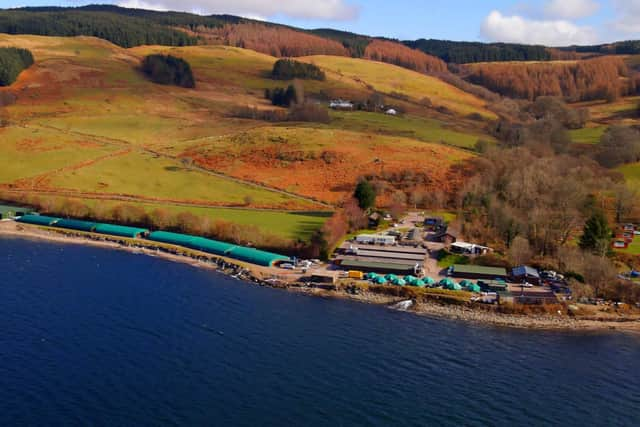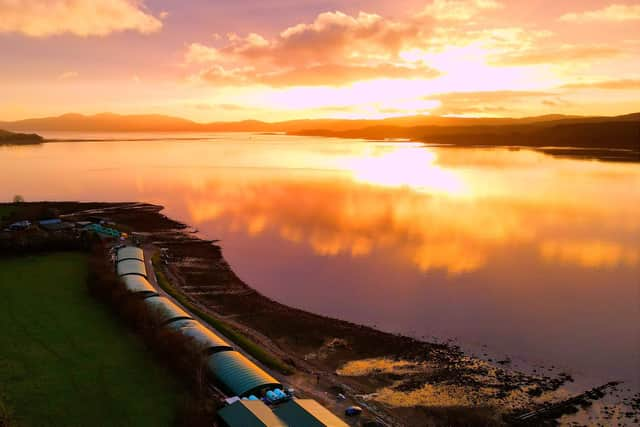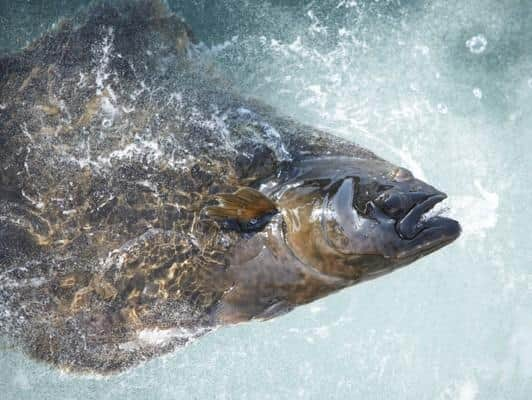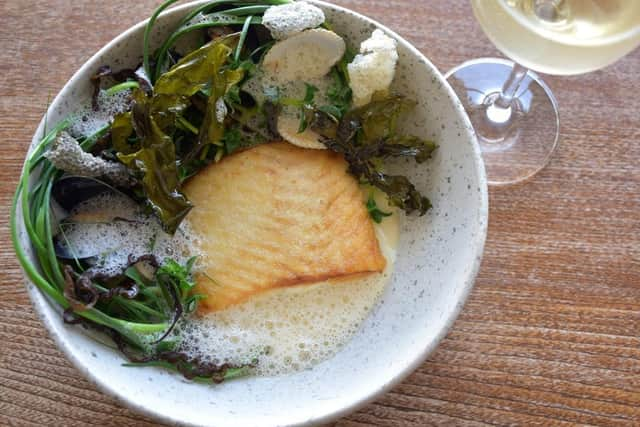What the closure of Gigha halibut means for sustainable fish farming in Scotland - and the future of Scottish halibut
Gigha halibut had become a byword for high-quality Scottish fish and, for those in the know, a more sustainable way to farm fish.
So when the business announced early las year that it was closing down, the decision was met with dismay from their enviable customer base, which included celebrity chefs such as Gordon Ramsay, Michel Roux Jnr, Rick Stein and James Martin. Scottish chefs and restaurants including Inver, The Three Chimneys on Skye and Restaurant Andrew Fairlie were also left without one of their main supplies. Gigha halibut was also served when the Queen had state banquets.
Advertisement
Hide AdAdvertisement
Hide AdWhen I arranged to interview Alastair Barge, managing director at Otter Ferry and the man behind Gigha halibut, he explained that it was serendipitous timing as he had just been speaking to former customers and reminiscing. “The grieving process is over,” he said. “It’s time to look forward to the future.”


Halibut farming in Scotland started at Otter Ferry Sea Fish. But fish farming – trout and salmon – started at this site in the late 1960s and early ‘70s respectively. The fish were farmed in tanks, on land, with water pumped into those tanks.
This was successful until fish farm cages were introduced, which was a cheaper way of farming. Farmed Scottish halibut was born from this tank method, as Mr Barge explained that halibut was a good species to farm as it grew well in Scottish temperatures and particularly enjoyed the tank on land.
After some early difficulties, the team perfected their method of hatching fish – in salt water, it is very tricky, Mr Barge said – and growing them. By the end of the 1990s, they were the only hatchery left in Scotland, at Otter Ferry. “
Fast forward to 2006 and we had been supplying cage farmers with halibut, but they decided to concentrate on salmon so we needed another customer,” Mr Barge said. “We created Gigha halibut on a site on Gigha that had been a land-based site for rearing salmon in the ‘80s.”


Mr Barge quickly ended up with a customer base, despite never focusing much on marketing. He said: “I think the amazing part of the story is the product and the provenance of the product. Doing it on tanks, on land, we got a very good product. We spent very little on marketing, the marketing was done by the product. The provenance, coming from the island, and the sustainable nature of the product really was a sort of self financing marketing project – the customer wanted it. Word of mouth brought us chefs and ambassadors.”
But while the customers loved the halibut, Mr Barge said the site was not ideal as water was often too shallow for the pump system, and the water getting warmer around Gigha due to climate change did not suit the species. Despite support from the landlord Holt Fish Farms and the demand from an array of award-winning restaurants and celebrity chefs, Gigha Halibut shut down in 2023.
“In the end, we were beaten by two things – the cost of power going through the roof last year, tripling the pumping costs, and the biology of the shallow water – we couldn't get to much more stable, deep water,” Mr Barge said. “We had to call it a day and a very sad day that was. There’s been quite a long period of mourning from us, but also from the market.”
Advertisement
Hide AdAdvertisement
Hide AdAndrew Neilson, from John Vallance Seafood Specialists in Glasgow, agreed, saying: “There was a real shock when the announcement was made. We had developed a great working relationship with Alastair and we were extremely proud to be one of the few companies stocking Gigha halibut, so it was sad to see a great Scottish success story coming to an end.”


With some chefs no longer choosing to use farmed salmon, and without Gigha halibut, some have gone back to using wild fish. Mr Barge said: “That was one of the sustainable credentials of Gigha halibut, that we weren't using wild fish and chefs didn't have to use wild fish. They could get a product that was of even better quality and consistency and because of that, we achieved moving them away from wild fish.”
Gigha halibut may be no more, but Mr Barge is still hatching Scottish halibut to sell to Norway and Canada. If he was to stop this, farmed Scottish halibut would cease to exist, as the breed is critically endangered – eating wild Atlantic halibut is like eating Pandas, according to Mr Barge. “We're still producing the juveniles at Otter Ferry, in the hatchery at Loch Fyne,” he said. “We're selling them to Norway and Canada, which sticks in the gullet a bit when we could be keeping these fish and growing them somewhere in Scotland.”
Not one to be beaten down, Mr Barge is keen to find the right location in Scotland for tank and pump-based fish farming, with deeper waters than Gigha and a renewable energy source. He said: “We're looking for investors, not just to take juveniles away to Norway and Canada, but investors that might want to grow fish in Scotland. We can grow 500,000 juveniles, but at the moment we're growing 100,000 and sending them to Norway and Canada. If you kept that 500,000 in Scotland, that could grow up to 3,000 tonnes of premium sustainable quality fish, which would add about £30 million-£40m to the economy.”
Mr Barge remains reflective but hopeful that he will, with the right investment and location, be able to bring farmed Scottish halibut back to his customers and on to the menus of the country’s best restaurants once again.


What Scottish chefs said about the closure of Gigha halibut
- Owner of Inver, Pam Bruton, said: “Wild Atlantic halibut is critically endangered – eating it is like ‘eating pandas’, according to Alasdair – so we sadly won’t be serving halibut again at Inver.”
- Colin Nicholson, chef patron at Mingary Castle, said: “I was so disappointed to hear they were closing down the farm on Gigha. I've often used Gigha Halibut in the past, with confidence that you were always receiving a high-quality product. You know where the fish has come from, you know how responsibly it's been sourced, and you know the love that has been put into producing such a beautiful fish. This consistency was always a factor when I used Gigha halibut, as they've always been a producer you can really trust.”
- Laura Smith, co-owner of Fhior, Edinburgh said: “It’s such a shame for Gigha Halibut. It’s the reality of small independent businesses in food and hospitality right now. It’s sad that a family-run business who created this quality sustainable product that they clearly feel passionate about is now gone. Surely this should be another cry to support independent, eat at independent restaurants, who in turn support independent producers and shop at your local greengrocer, fishmonger and butchers.”
Advertisement
Hide AdAdvertisement
Hide Ad- Dean Parker, chef patron of Celentano’s, Glasgow, said: “It’s very sad. It’s a rather unique farm as halibut needs so much more space, and it’s the only halibut farm in Scotland. We have used them in the past as the quality is of a very high standard. It’s a sad sign of the times as more jobs will be lost and for the industry, prices of other products will go up due to lack of availability.”
Comments
Want to join the conversation? Please or to comment on this article.